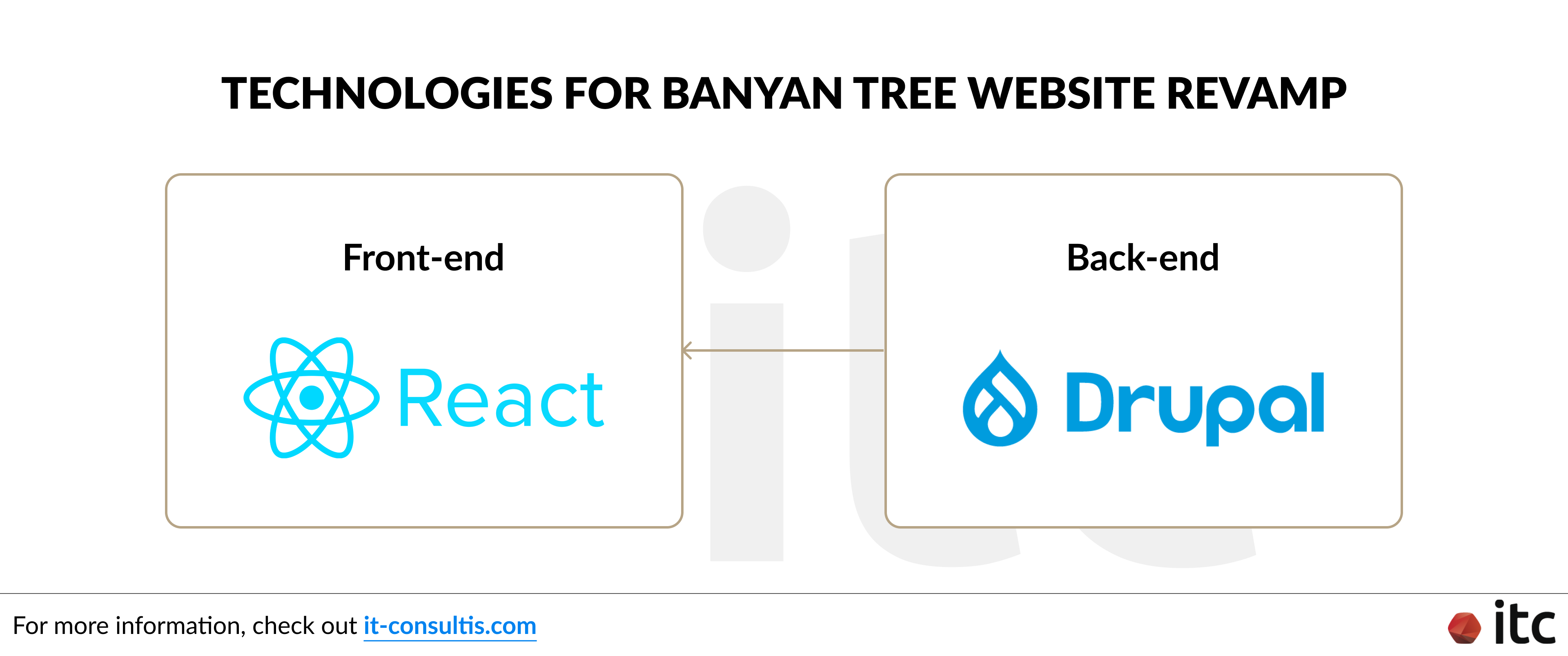In this Drupal website development case study, we’ll clue in how we helped a leading international hotel & resort group – Banyan Tree – revamp the websites for its 4 hotel brands and more than 200 properties to enhance global visibility and maximize ROI with Drupal.
About the client: Banyan Tree Group
Banyan Tree Group, partnering with Accor Group, is a renowned global operator of premium hotels, resorts, spas, galleries, golf, and residences, featuring 10 global brands within its diverse ecosystem and over 40 hotels and resorts in 25+ countries.
Among its portfolio, the award-winning Banyan Tree and Angsana brands are some of the primary revenue drivers for the group, offering luxurious and ecologically conscious hospitality.
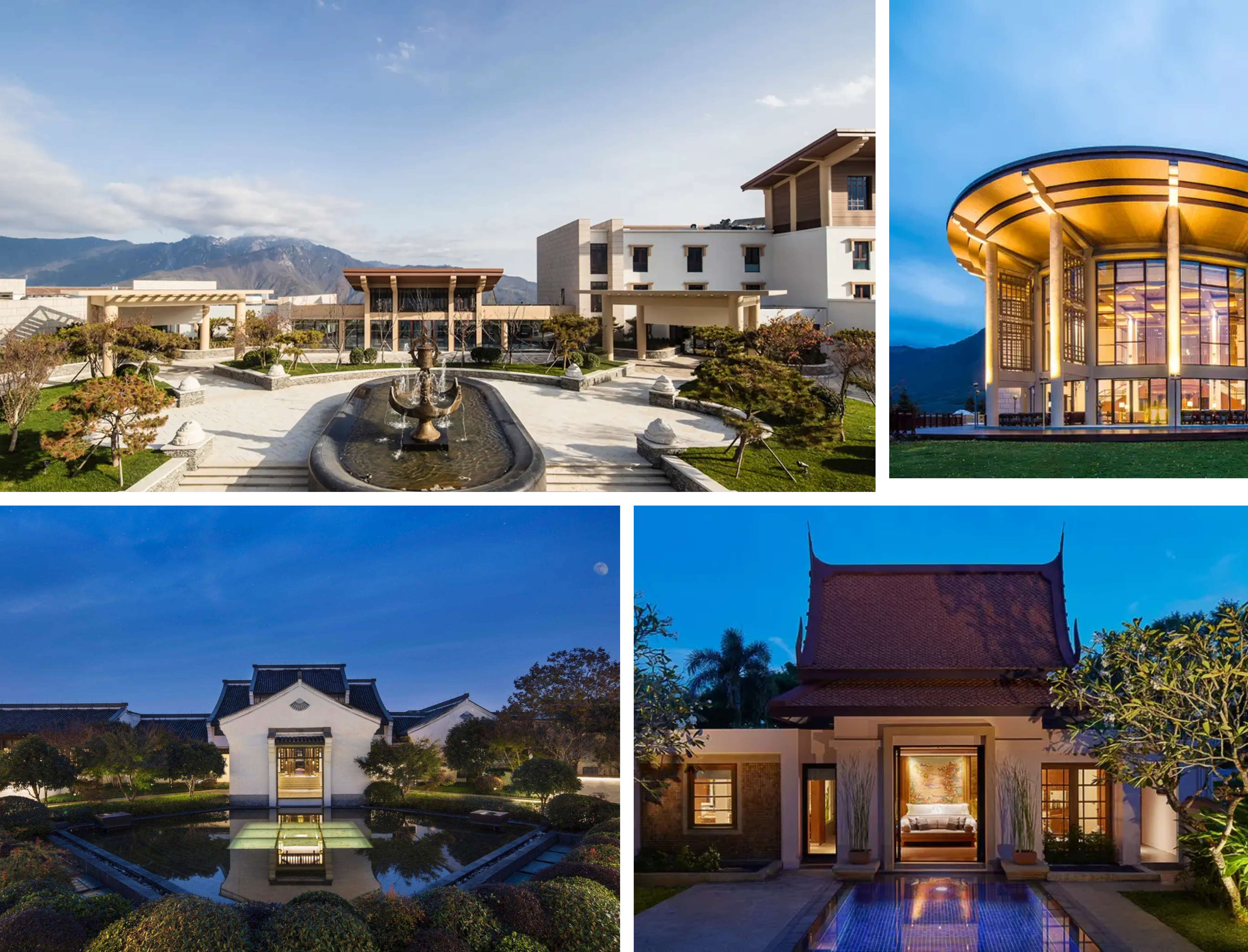
As one of the key windows of engagement with customers across different target markets, Banyan Tree and Angsana brand websites play a critical role in winning the favor and trust of customers.
This stresses the focus on excellent website design, user experience, and ease of content management and publication for internal operations.
Thus, the premium hospitality brands, Banyan Tree and Angsana, worked with IT Consultis (ITC) to revamp their global websites leveraging Drupal to deliver a luxurious brand image with smooth and excellent experience, on-brand with their high-class offerings.
Objectives
The key challenges the leading hospitality brands were facing include:
- The outdated website design was not able to deliver the desired deluxe brand image
- The page layouts were fixed, making it difficult to add or modify content blocks
- The websites were only available in a single language – English, despite having global presences in over 25 countries
- Cluttered and disorganized Spa sections, hence difficult to find information
There was also the hurdle of inserting content into the Back Office. There were around 1,500 pages for over 30 hotels of Banyan Tree and 25 hotels of Angsana in English alone. When considering the Chinese language, the number of pages to insert could reach 3,000.
Additionally, as each hotel property in each location is a small website managed by its hotel manager, we needed to build and improve a galaxy of 60+ sub-websites for Banyan Tree and Angsana.
Thus, working with ITC, the main objectives of this website revamp project were to:
– Create a stunning appearance for the global website, delivering a luxurious brand image with high-class services
– Improve the visibility, user experience, and content management of 60+ sub-websites for hotel properties so that they can be managed independently by each hotel manager
– Motivate customers to discover all the Group’s recreational offerings and drive subsequent traffic to different brand pages
Solutions for Banyan Tree (and Angsana)
It should be noted that ITC first worked with Banyan Tree websites. Subsequently, the solutions were duplicated for the front end and back end of the Angsana websites.
Revamp the Website Design
As the original website design was quite outdated, it could not deliver the desired deluxe brand image.
Thus, the revamp of these global websites’ appearance with a bespoke UX/UI made sure they match the current Visual Identity (VI) and the latest visual expectations of a premium award-winning brand.
For Banyan Tree, we opted for a light brown theme and modern button designs that could translate the authentic, genuine, and inspiring retreat experience at different locations around the world.
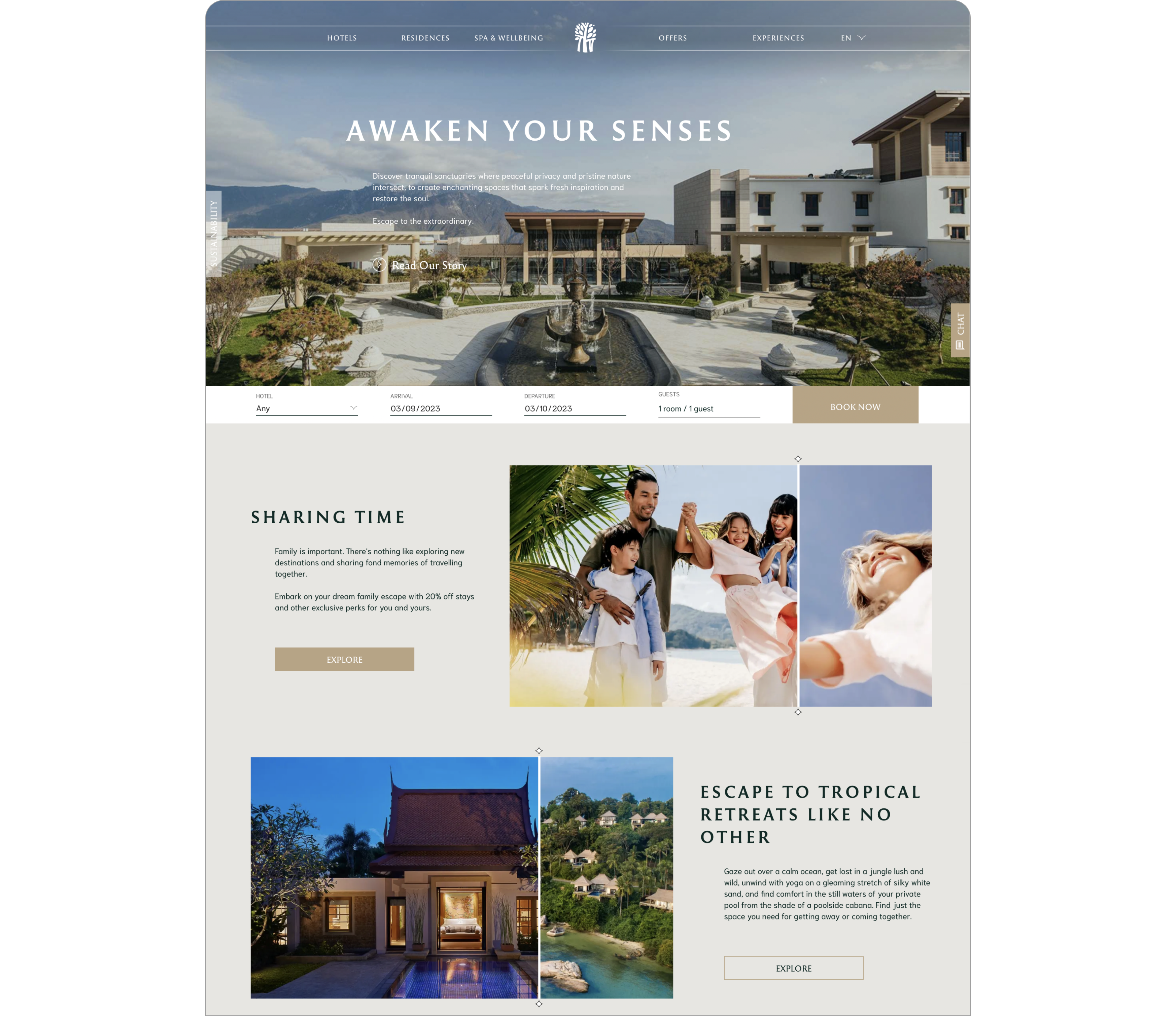
As for Angsana, which exudes an adventurous and vibrant spirit with local chic, a switch to a bold burnt orange theme with large serif headings and window-like image style was an upgrade from the previously more rigid design.
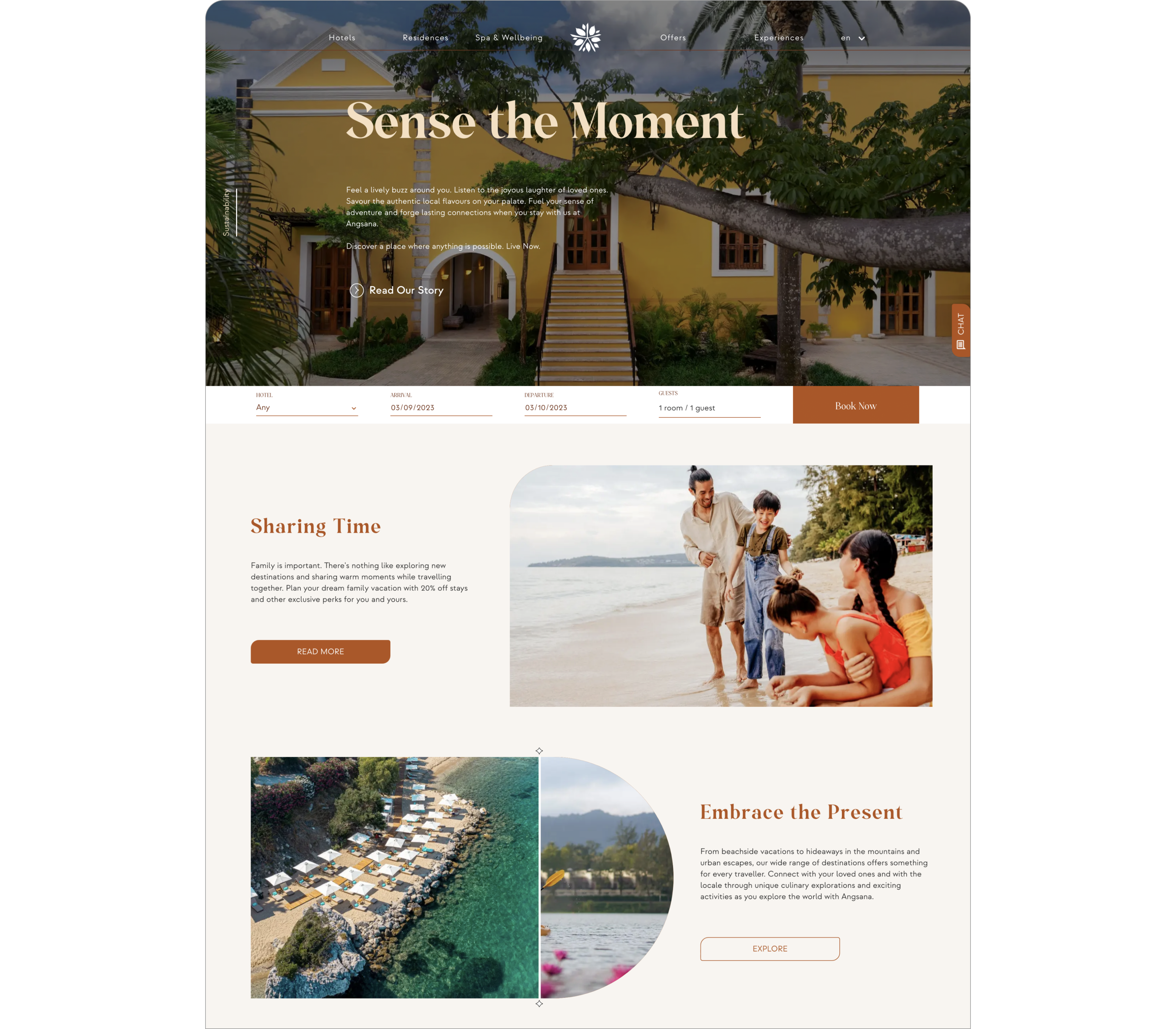
Improve the Content Management Structure
The Banyan Tree and Angsana websites also had fixed page layouts. This made it very challenging to add or modify anything, as the admin cannot control the layout. A task as simple as adding a new block with 2 columns or a new gallery to the page when needed was not possible.
To improve content management, Banyan Tree made the switch from the fixed layout to component-based layout leveraging the content management system (CMS) Drupal, which has an excellent structure and can handle custom fields and more complex layouts.
With the component layout, the internal team can now easily manage, add, or remove content blocks from the Back Office.
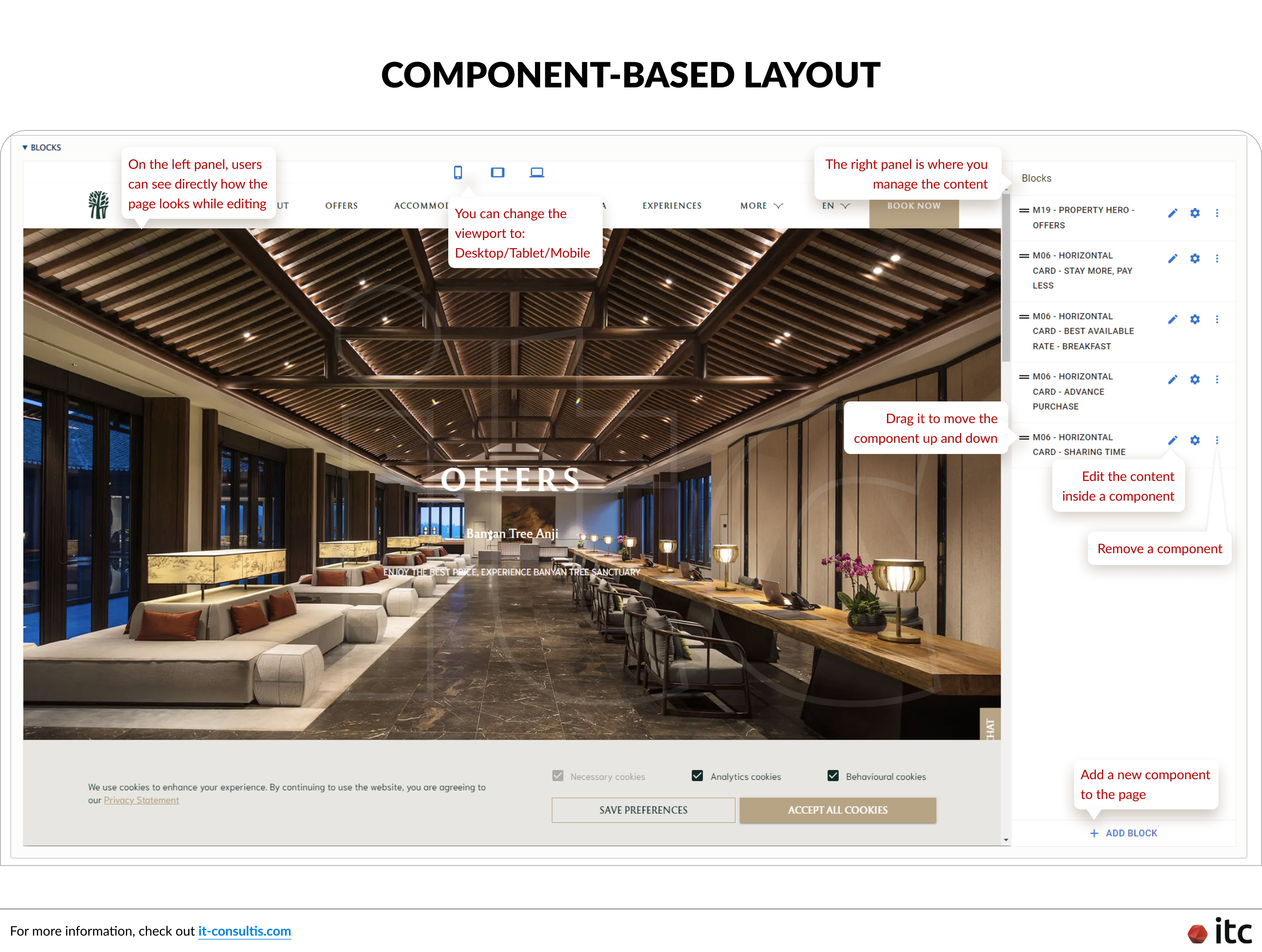
Add the Mega Menu
In order to improve the navigation experience for customers, a well-organized Mega Menu was also added to the desktop view of the website.
As a result, users can perform a quick scan to easily find the country destinations and hotels they are interested in, which are now no longer hidden in layers of the menu hierarchy and are only one click away.
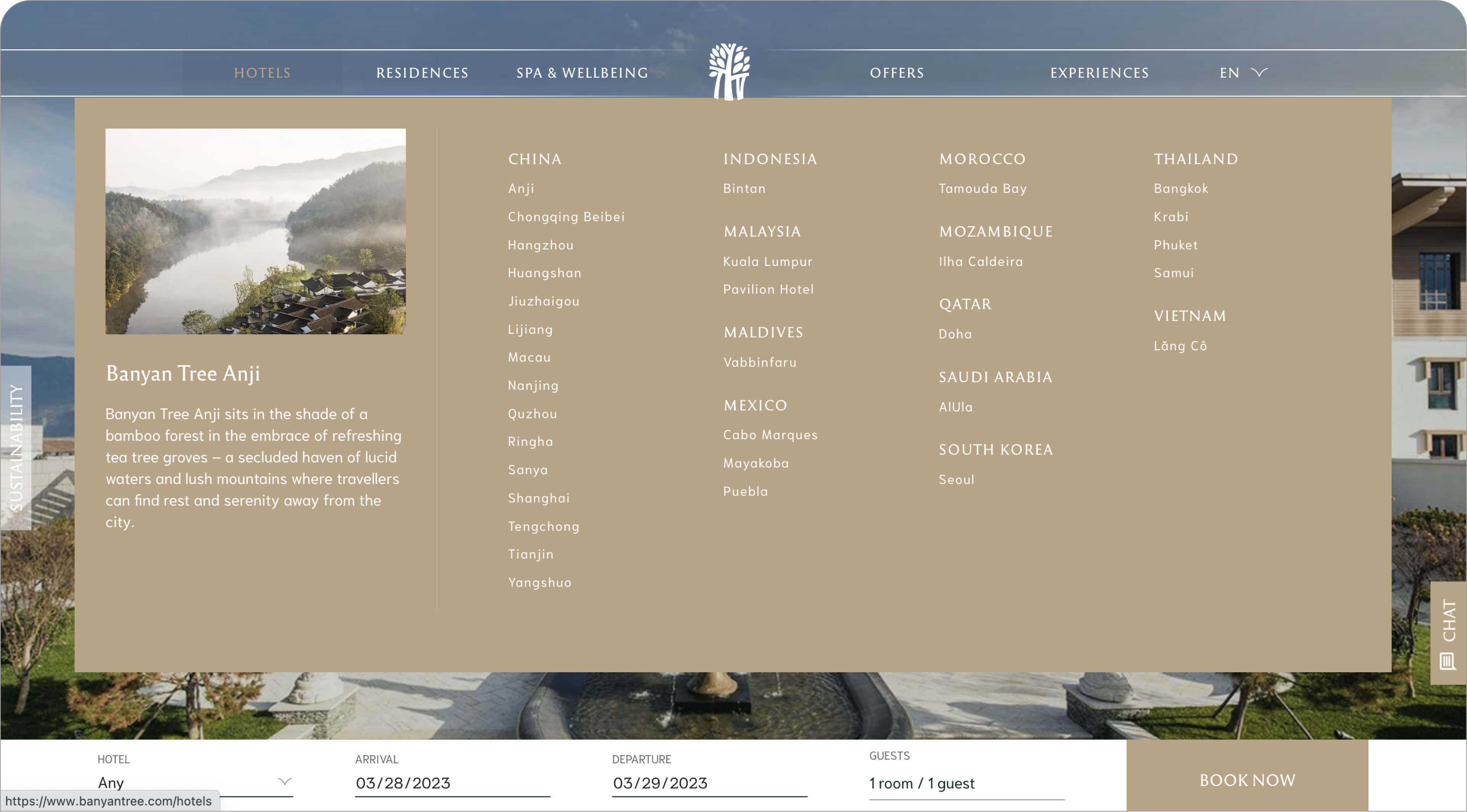
Enable Multi-Language Support
As previously mentioned, despite having a global presence in over 25 countries, the Banyan Tree websites were only available in 1 language – English.
Hence, by leveraging Drupal’s built-in multi-language functionalities, Banyan Tree can now support different language sets for different hotels.
For instance, a hotel in China can be viewed in both English and Chinese, while a hotel in Saudi Arabia can display content in both English and Arabic.
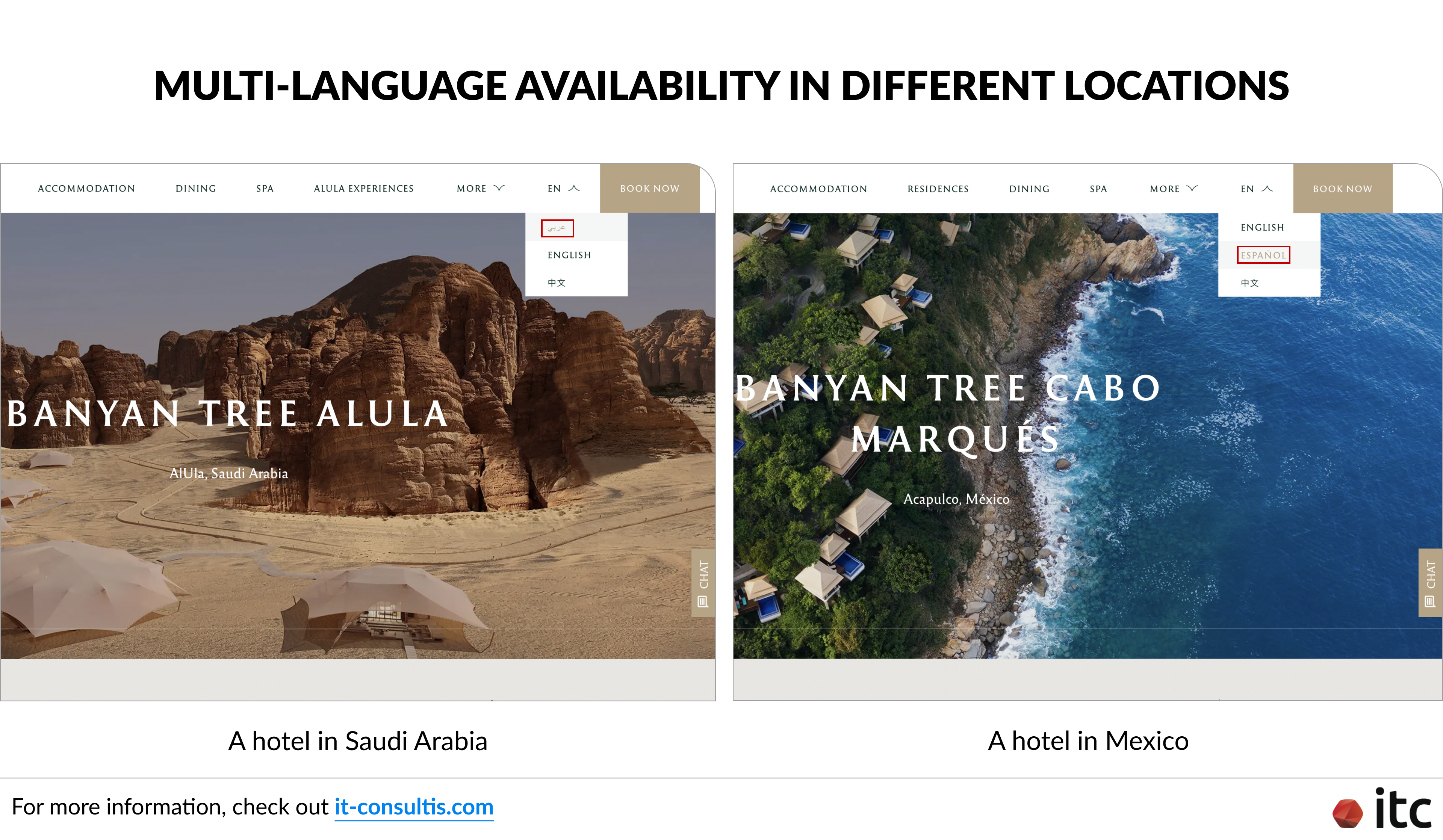
This way, Banyan Tree could support different target markets and enable visitors to access the Drupal websites in their preferred language.
Update the Sitemap
The Spa section, in particular, was very cluttered and disorganized with no clear structure, making it difficult for visitors to navigate and find the right information.
To enhance the user experience, the Spa section was separated from the Hotels menu and now has its own space in the Menu bar.
It was then restructured with an improved sitemap to provide a more organized and user-friendly experience for visitors to learn about the spa’s services and amenities.
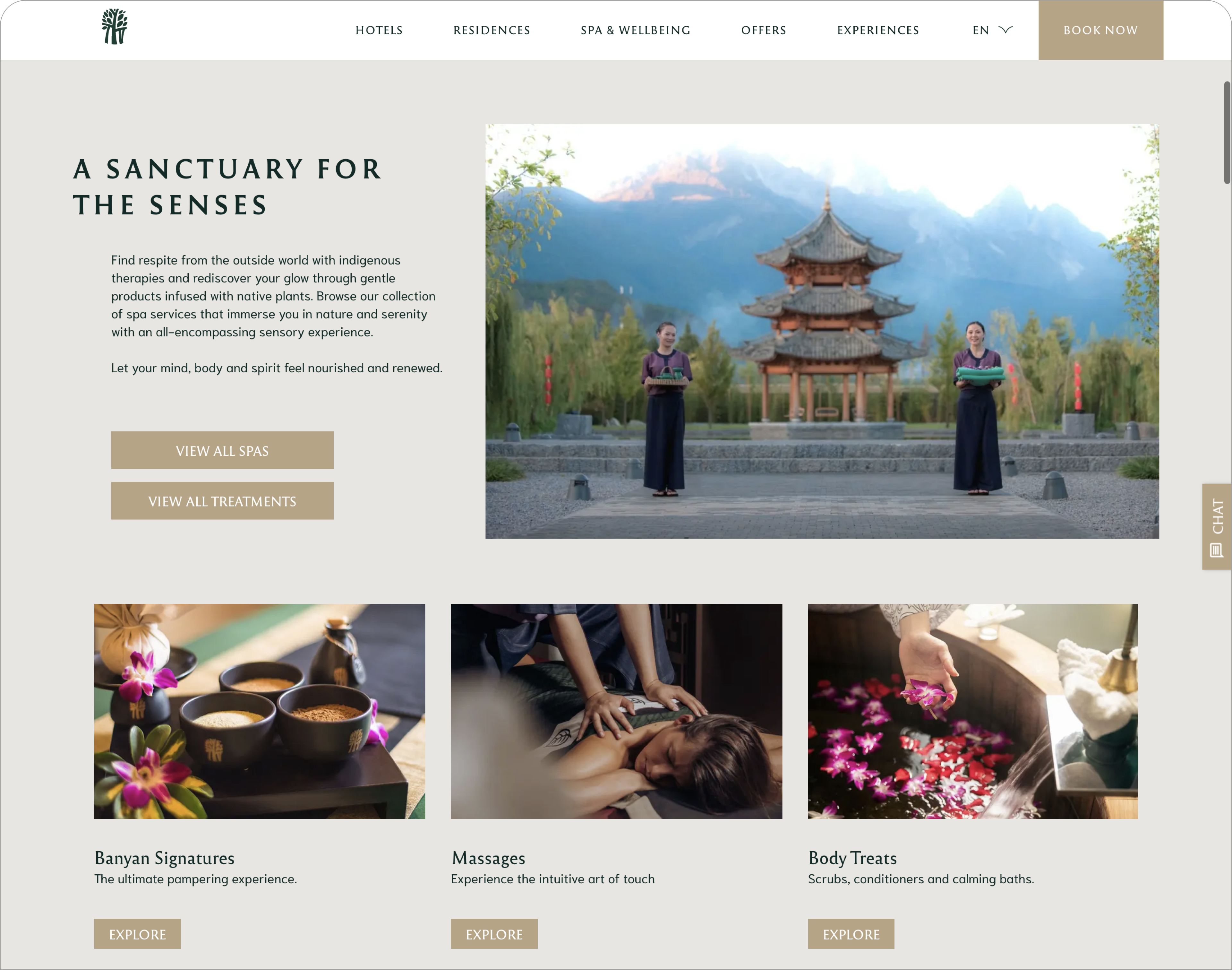
Insert Extensive Content
Due to the move from the fixed content layout to the component-based layout, content cannot be easily migrated from the original site. Now, to insert, it is essential to know which component the Group wants as well as the content of each component.
In addition, as mentioned earlier, there were around 3,000 pages of content to insert into the back office in a very short time.
To manage this, IT Consultis (ITC):
- Worked with the Banyan Tree Group to clarify the data mapping document, which involves the data of all Banyan Tree and Angsana hotels, how the content should be displayed, and where.
- Organized a team of 10 people to efficiently insert all of the content in 2 weeks.
Newest Developments for Banyan Tree and Angsana Drupal Websites
On top of the previously mentioned fundamental improvements for Banyan Tree and Angsana, the websites for the leading hospitality group are still undergoing continuous development. Some of the most notable updates include:
Offer Component Amendments
Attractive offerings are always popular with customers. Thus, to enhance the user experience and boost the conversion rate for the hotels’ special offers, the Offer component has been adjusted.
Previously, users had to check the details of the offer at each hotel before they could book.
However, after researching and gauging all their options, customers would want to make the purchase swiftly and easily once they make the final decision.
Now, the Drupal websites have the Book Now button enabled on the Offer grid component. The URL is also prepopulated based on the data indicated in the Offers tab, which includes: nights (minimum stay), rate code, hotel code, hotel config, and brand theme.
As a result, users can book directly from the Offers Listing page without having to view the details first, removing one step for a more optimized user journey.
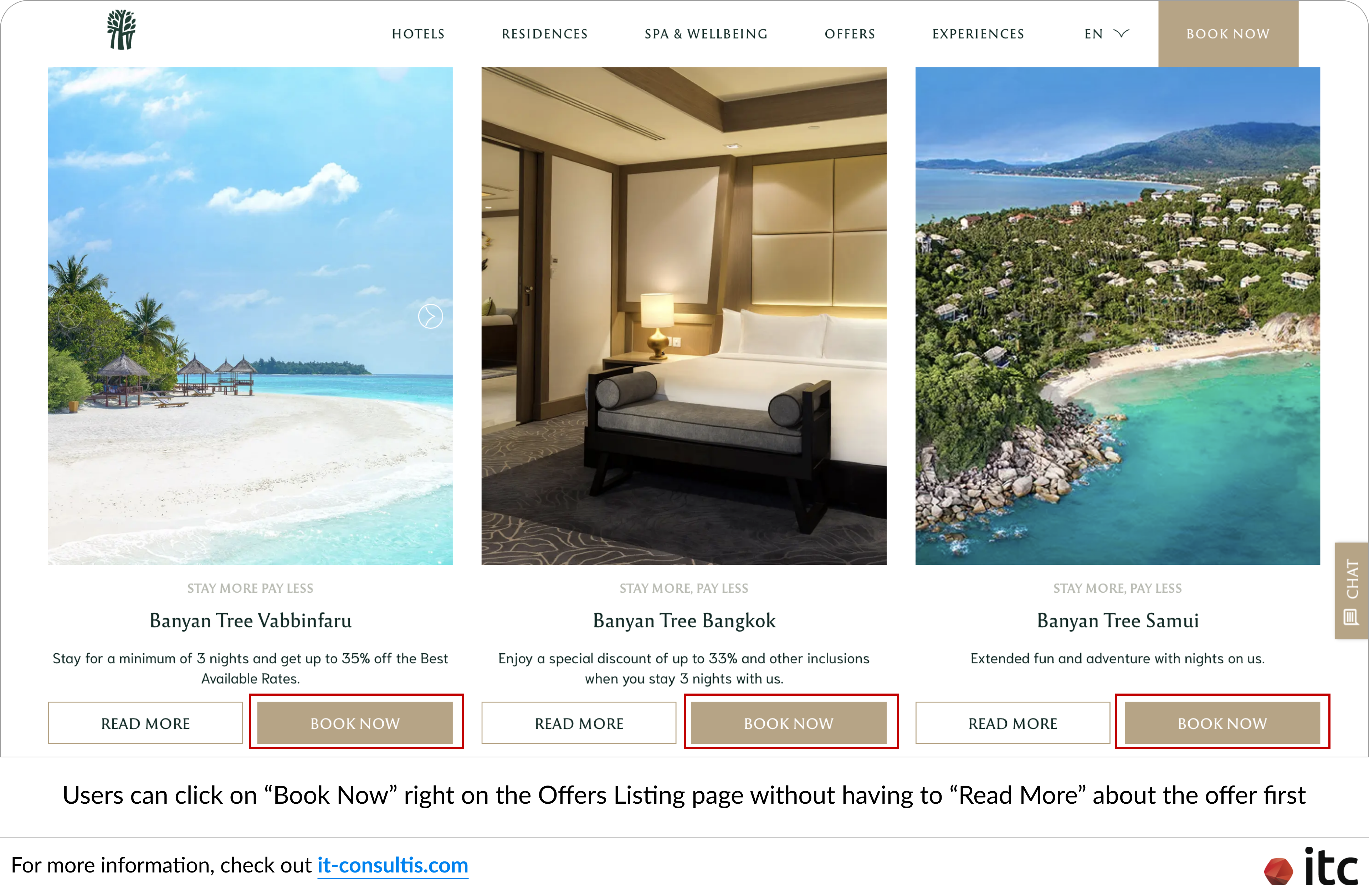
Another addition is the filter on the Offer grid component to filter the offers by country. This allows users to easily discover whether there are any attractive accommodation offerings for the location they are traveling to.
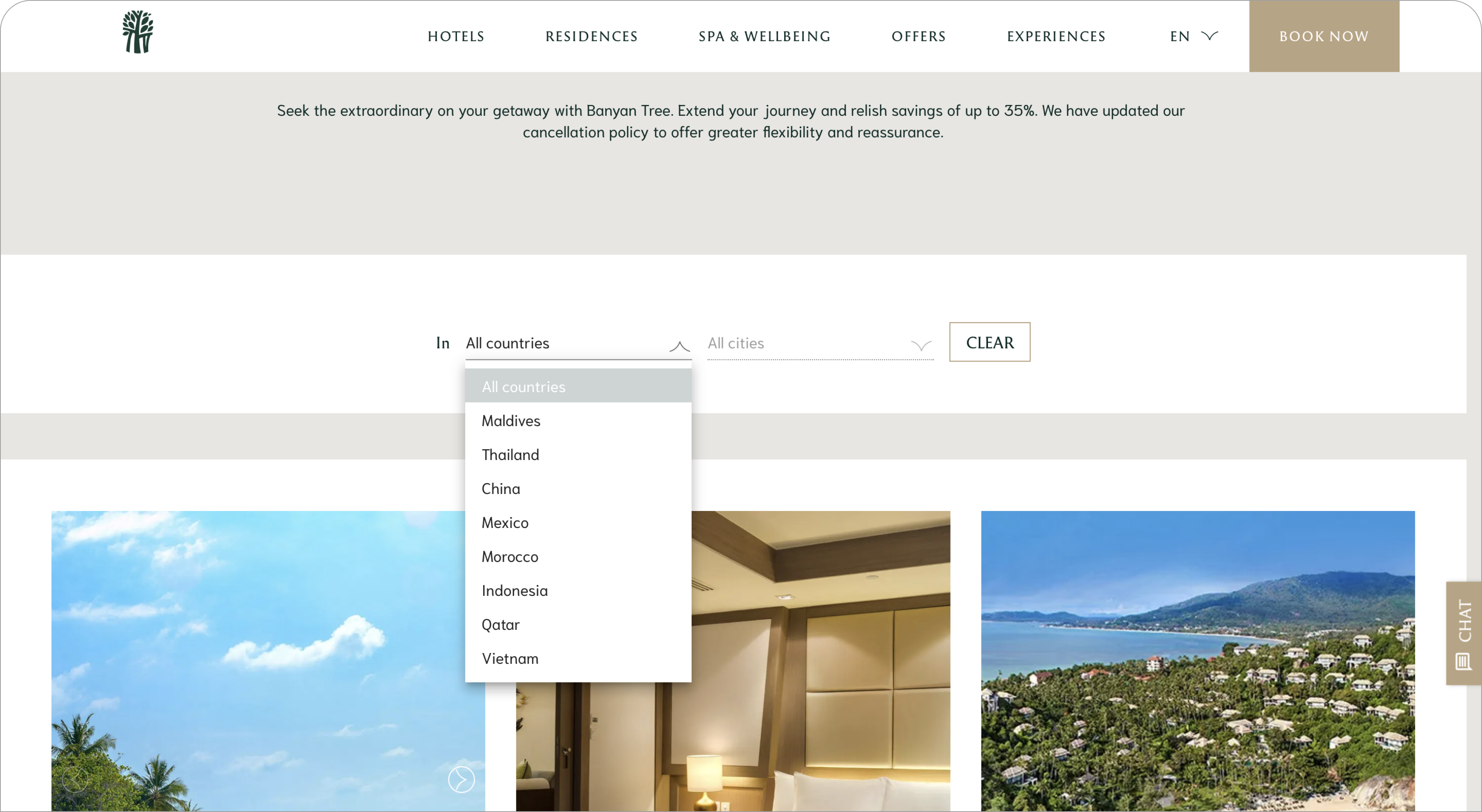
Users’ Currency Personalization
The Banyan Tree and Angsana websites can now also detect where the user is and add and adjust the currency parameter in the generated Booking link accordingly.
For example, if you are based in Singapore and click on Book Now, the prices will appear in SGD, for the convenience of your retreat planning.
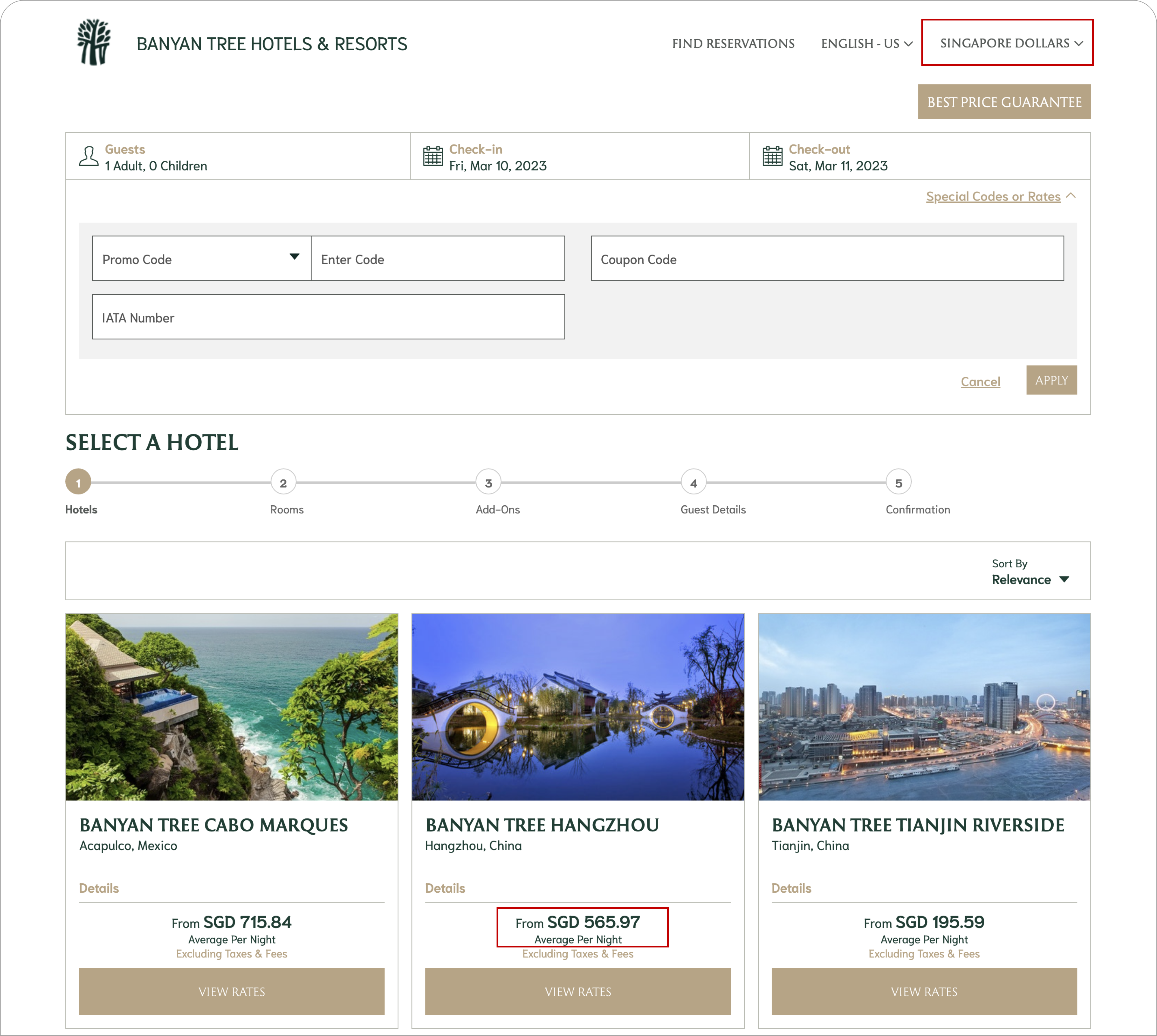
IcePortal Integration
In terms of upgrades for the back-office assets, one of the most notable changes is the integration of IcePortal, an asset management system.
Previously, media, including images and videos for individual websites, were uploaded directly onto the Drupal backend, which is connected to the Amazon S3 storage service. Thus, admins could only get access to media they have already added to Drupal’s asset managers.
Moreover, since all the different branches are under the same Banyan Tree Group, it is not unusual for them to use the same images or videos sometimes. This could lead to media duplication, which can be a growing issue as the number of media increases significantly over time.
Thanks to the integration of the IcePortal system, all media for all branches under the Group, including Banyan Tree, Angsana, and in the future, Dhawa and Cassia and more, are now uploaded onto IcePortal instead.
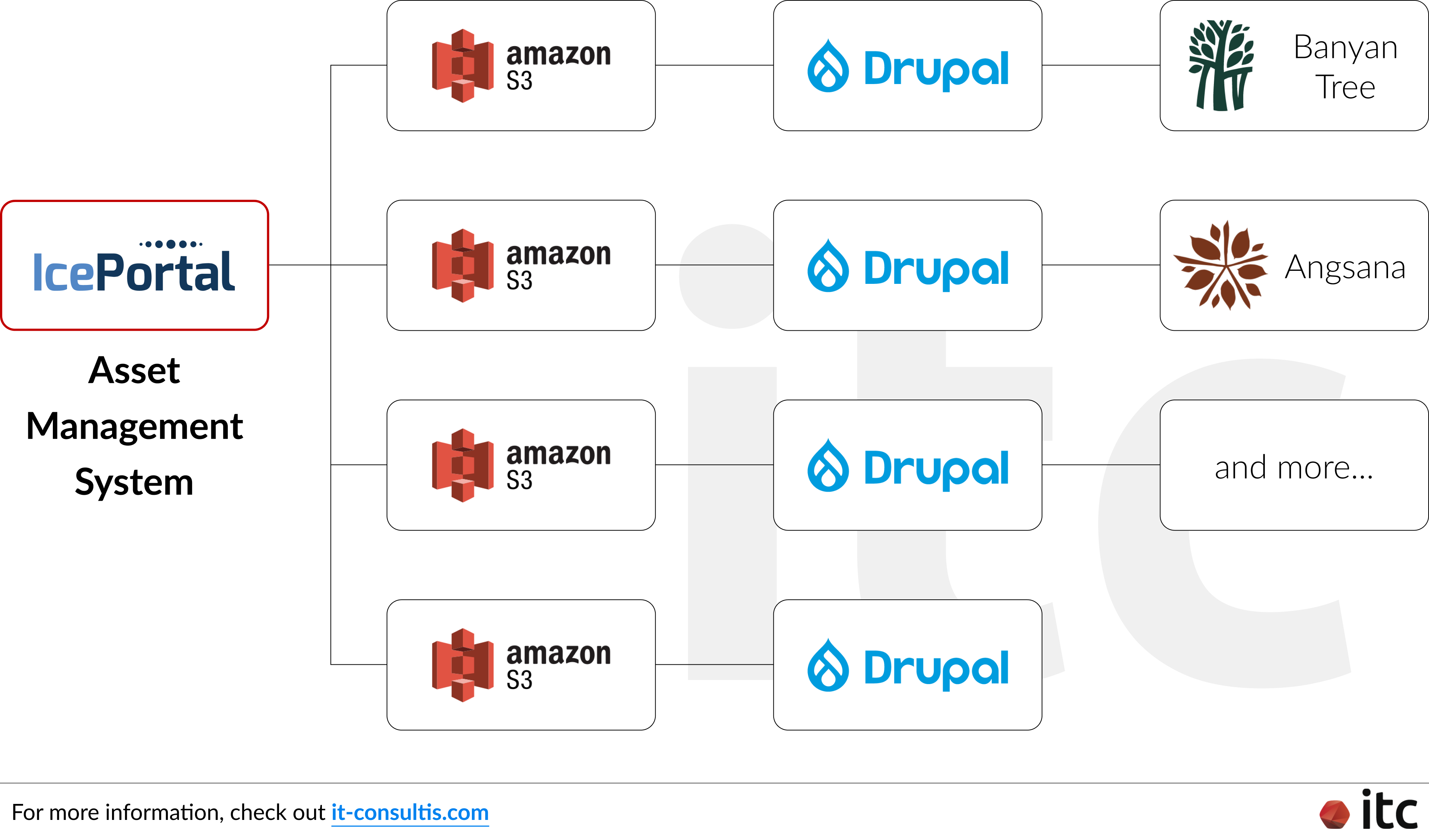
As a result:
- All assets of the Group’s websites are optimally consolidated in a single system
- Admins can get access to all images and videos on IcePortal, rather than being limited to those they upload themselves
- Duplication issues can be resolved
Results
With these changes in the Banyan Tree and Angsana websites’ visuals and content management leveraging Drupal, the Group has perfectly optimized its global assets to serve customers both in and outside of China.
Users can now enjoy an upgraded and bespoke user journey, a blazing-fast performance, and an amazing reservation process for their holiday itinerary planning.
Going forward, similar improvements to other websites under the Banyan Tree Group can be expected in collaboration with ITC.
